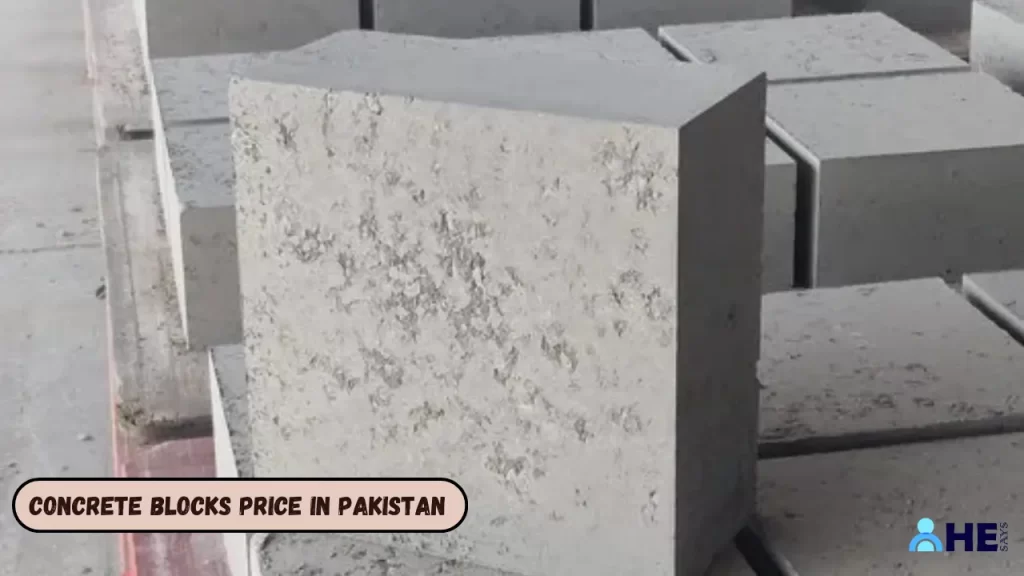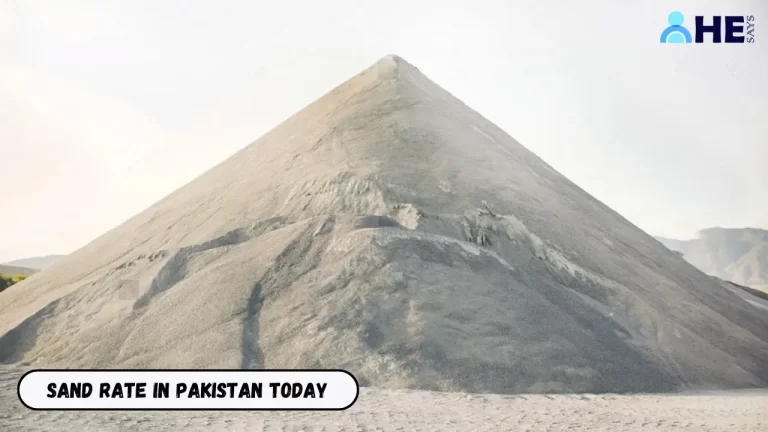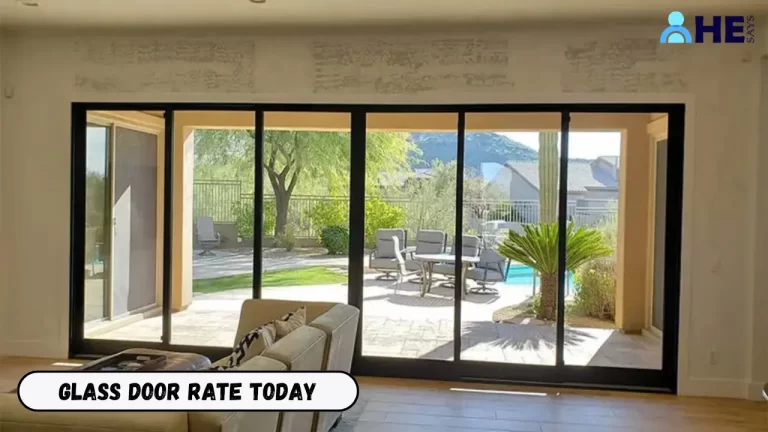Concrete Blocks Price in Pakistan 2025 (Update Rate)
Concrete blocks in Pakistan generally range in price from RS. 30 to RS. 75 per block, depending on factors like size, quality, and location. The prices can vary slightly based on market demand and other economic factors.
The importance of concrete blocks in Pakistan cannot be overstated. They are widely used for constructing strong, durable, and cost-effective walls in both residential and commercial buildings, making them a popular choice among builders and contractors.
Concrete Blocks Price Today in Pakistan (Updated)
The Cost of concrete blocks in Pakistan today reflects various factors, including material quality, regional availability, and current market demand. As construction projects become more widespread, prices can fluctuate based on supply and labor costs. Staying updated on these prices helps builders and homeowners make more informed decisions, ensuring they get the best value for their investment.
| Sr. No | Size (in inches) | Dimensions (mm) | Price/Block |
|---|---|---|---|
| 1 | A5 (16”x3”x8”) | 400x76x200 | RS. 35 |
| 2 | A3 (12”x5”x8”) | 400x127x200 | RS. 65 |
| 3 | A6 (16”x2”x8”) | 400x50x200 | RS. 30 |
| 4 | A2 (16”x6”x8”) | 400x127x200 | RS. 70 |
| 5 | A1 (16”x8”x8”) | 400x200x200 | RS. 75 |
| 6 | A4 (12”x4”x8”) | 400x101x200 | RS. 40 |
Also Read: Sand Prices Today
Types of Building Concrete Blocks Used in Pakistan
In Pakistan, several types of concrete blocks are commonly used for construction, including:
- Cement Blocks
- Stone Blocks
- Concrete Blocks
- Fly Ash Blocks
- Sandstone Blocks
- Bricks
- Glass Blocks
- Tuff Blocks
Factors Affecting Concrete Blocks Price in Pakistan
Several factors influence the Cost of concrete blocks in Pakistan, including demand, raw material costs, manufacturing processes, and transportation. These elements combine to determine the final cost for builders and consumers.
Demand and Supply
The demand for concrete blocks often fluctuates with the construction industry’s growth. When demand is high due to large-scale construction projects, prices tend to rise. Conversely, when supply exceeds demand, prices may stabilize or drop.
Higher Inflation Rates
Inflation has a direct impact on the price of construction materials, including concrete blocks. As inflation increases, the cost of raw materials, labor, and production rises, leading to higher prices for concrete blocks.
Raw Material Costs
The cost of raw materials such as cement, aggregates, and sand plays a significant role in determining the rate of concrete blocks. Any increase in the cost of these materials will lead to a rise in block prices.
Manufacturing Costs
Manufacturing costs include labor, energy, and factory overheads. These expenses contribute to the overall rate of concrete blocks, and any changes in production methods or labor costs can influence the Cost.
Transportation and Distribution
Transportation costs are another crucial factor in determining concrete block prices. The farther the blocks need to be transported, the higher the shipping fees, which can significantly increase the final cost of the blocks delivered to the job site.

Concrete Blocks Manufacturers in Pakistan
Several reputable manufacturers in Pakistan supply high-quality concrete blocks for various construction needs, including:
- Yousuf Blocks
- Izhar Concrete Pvt. Ltd
- Darwesh Ceret
- Tradeworth International
- M Square Services
- Siraj Concrete Industries Pvt. Limited
- KeyStone Private Limited
- HNH Developers
Advantages and Disadvantages of Concrete Blocks
Advantages:
- Durability: Concrete blocks are highly durable and resistant to wear, ensuring long-lasting structures.
- Fire-Resistant: Concrete blocks are non-combustible and provide fire resistance, enhancing safety.
- Energy Efficiency: They offer good thermal mass, helping to regulate temperature and reduce energy costs.
- Low Maintenance: Concrete blocks require minimal upkeep, making them cost-effective in the long run.
- Sound Insulation: Their dense structure provides effective soundproofing for quieter interiors.
- Eco-Friendly: Made from natural materials, concrete blocks are environmentally friendly and recyclable.
- Affordable: Generally cost-effective compared to other building materials, especially in large quantities.
Disadvantages:
- Heavy Weight: Concrete blocks are heavy, making transportation and handling more difficult.
- Limited Aesthetic Options: While functional, concrete blocks may not offer as many design options as other materials like bricks or wood.
- Cracking Risk: If not properly maintained, concrete blocks can develop cracks, particularly under extreme weather conditions.
- Labor-Intensive Installation: Installing concrete blocks requires skilled labor and may take longer compared to other materials.
- Moisture Issues: If not sealed correctly, concrete blocks can absorb moisture, leading to mold and mildew growth.
Tips for Maintaining Concrete Blocks
- Remove dirt and stains to maintain appearance.
- Protect against moisture with a sealant.
- Inspect for cracks or chips and repair promptly.
- Fix worn mortar joints as needed.
- Use mild cleaners to protect the surface.
- Remove plants or weeds around blocks.
- Fix cracks immediately to prevent further damage.
- Keep water flowing around blocks to prevent moisture buildup.
Also Read: Marble Rate in Pakistan
Overall Conclusion
Concrete blocks are a popular and reliable choice for construction projects in Pakistan due to their durability, affordability, and versatility. While they come with some challenges like weight and moisture issues, proper maintenance and care can significantly enhance their lifespan. By understanding the factors that affect their price and the different types available, you can make informed decisions that ensure the success of your building projects.






